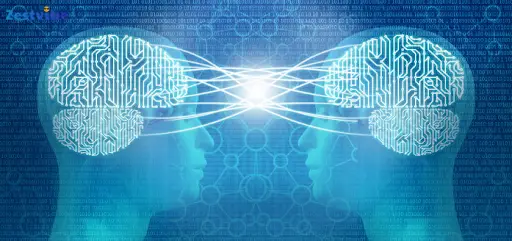There is a deep connection between our minds and bodies. Have you ever felt nervous before a presentation or event and noticed your body was sweating and jittery? Your body responds to the way your mind is thinking.
Whether it’s feeling anxiety or depression, your body responds by shutting down, and you feel lethargic. This establishes that there is a complex mind-body connection. In this blog, we’ll discuss the intricate ways the two are linked and how your mental health affects your physical well-being.
Interpreting the Mind-Body Connection
There has been research in the field of psychoneuroimmunology focusing on psychosomatic health and how our mental health and emotional well-being can affect our physiological health. Succinctly described, the mind-body connection is the interaction between our emotions, thoughts, and physical health.
When we experience stress, anxiety, depression, anger, and so on, our bodies respond by launching a multitude of physiological responses and triggers that can impact our physical well-being.
At the center of it all, the mind-body connection helps us realize that our bodies aren’t just machines but a complex ecosystem of emotions, feelings, and thoughts.
Whenever we feel fear, our body reacts by feeling adrenaline, which causes our hearts to race, pupils to dilate, and triggers the “fight or flight” response of the body.
There are even subtle changes, like our heart rate racing up, blood pressure, and more simply by activating pathways with the help of our thoughts.
We may like to think of ourselves as two separate parts—an abstract inner world and a tangible outer being. But we’re a culmination of both.
They affect each other; proof of that is the mind-body connection. By understanding how our inner world shapes our outer well-being, we can cultivate better holistic health.
Let’s examine what holistic health means for our complex and interconnected health system. Holistic health is an approach that simultaneously deals with mental, spiritual, physical, and emotional health.
As a field of medicine, it draws inspiration from various cultures, religions, regions, environments, and so on. This field of medicine considers multidimensional aspects of our well-being.
Psychosomatic Health: How Our Mind Influences Our Body
Once considered bogus, this field of study is now recognized as legitimate and has far-reaching implications for holistic health. This field of health and medicine concerns relate to how our thoughts and emotions make us susceptible to illnesses and diseases.
The role of chronic stress and its role in aggravating our physical ailments is the most researched. It leads to headaches, chronic pain, sleep issues, and more. The effects of chronic stress begin by making our bodies stay in a state of distress.
This constant distress leads to inflammation, dysregulating hormones, creating imbalances, and more. The direct impact of constant stress also affects our cardiovascular muscles.
Similarly, trauma, triggers, and negative behavioral patterns show up as physical symptoms. People with untreated grief could experience prolonged chest pains. Similarly, people with anxiety may experience constriction in their chest or develop gastric issues.
Mental Health and How It Influences Physical Well-Being
We have already established that mental health and physical well-being are connected. We can now delve into how the interconnectedness of the two impacts the latter.
Studies have indicated that untreated mental health issues lead to individuals being more prone to a plethora of physical problems like diabetes, immune disorders, heart problems, and more.
On the other hand, positive psychology and mental health can help decrease the influence of factors like stress on our overall physical well-being. Stress relief techniques such as meditation, mindful breathing, and behavioral therapy have led to the reduction of inflammation, improvement of immunity, and safeguarding overall health.
Holistic Health: Integrating Everything
The primary goal of holistic health is to nurture the harmony of mind, body, and spirit. It balances all aspects of our health, and instead of treating issues and symptoms by themselves, holistic health treats the root cause of the illness by understanding the culmination of imbalances in all aspects of our body.
Mindfulness practices such as meditation, yoga, and tai chi are powerful tools for strengthening the mind-body connection and promoting better mental health. With the help of techniques like body scan meditation, comprehensive movement, and breathwork, we can help build a sense of inner peace and get in touch with our physical well-being in a gentle manner.
Apart from exercise, sleep, and diet, food plays a massive role in our holistic health. The foods we consume dictate how our body feels and impact our physical well-being and emotional health.
A healthy diet should include nutrient-dense foods such as vegetables, lean meats, and fruits. The nourishment we provide to our body allows it to regulate and balance our minds and spirits.
Developing a Healthy Mind-Body Connection
There are various strategies to develop and cultivate happiness. These strategies will help you foster a healthy mind-body connection as well. Here are the techniques you should use:
- Mindfulness Breathwork: Incorporating mindfulness meditation will help you cultivate a sense of awareness and will strengthen the connections of your body. With the help of these practices, you can reduce stress and ensure your mental health isn’t affected by the stress of your fast-paced life.
- Emotional Health: Processing complex emotions you may be avoiding can also hinder your overall mental health. By processing your emotions in a safe and secure environment, you’re ensuring that you’re listening to your body’s needs. You will be able to treat your physical well-being with compassion.
- Relationships: Due to the social nature of human beings, we thrive in communities. Having a support system and meaningful relationships would guarantee you’re never alone and can lean on someone when needed. By fostering meaningful connections, you can nurture your mental health and promote holistic health.
Embracing Balance
The dynamic force of the mind-body connection is no joke. Its profound nature and interconnectedness help us nurture our health, promote holistic health, and improve the quality of our lives. This approach toward mental health and physical well-being allows us to feel more balanced and connected with ourselves.
With the help of mindfulness, emotional balance, activity, nutrition, and relationships, we can move towards our journey of holistic health and fulfillment.



